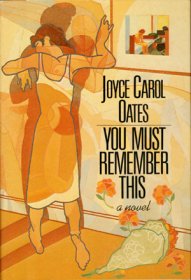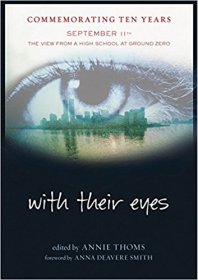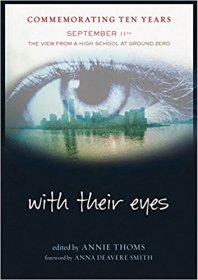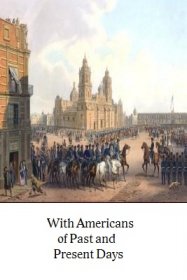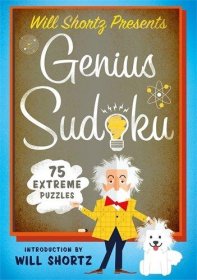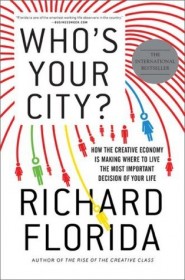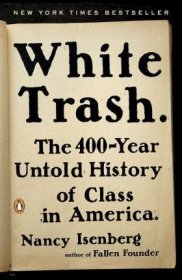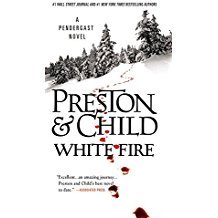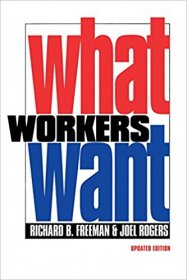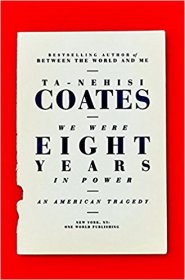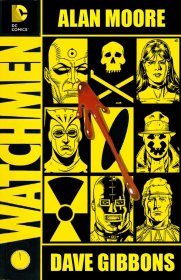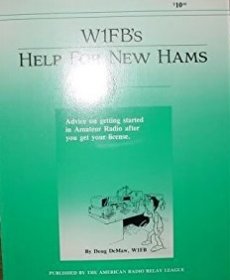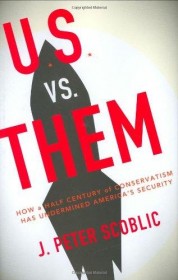- Fiction
- Rare Books and First Editions
- Young Adult Fiction
- Childrens' Literature
- Poetry
- Handicrafts
- Food & Cuisine
- Drama
- Graphic Novels
-
Non Fiction
- Literary Criticism and Theory
- Current Events
- Biography Memoir
- Celebrity
- Journalism
- Politics
- True Crime
- Travel
- Geography Cartography Atlases
- Photography
- Science General
- Science Physics Cosmology Astronomy
- Nature Ecology
- Mathematics
- Computers Technology
- Computers Internet Social Media
- Engineering Electronics Robotics
- History American
- History European
- History Ancient
- History Warfare
- Religion & Spirituality
- Shamanism Sorcery
- Divination
- Feng Shui
- Philosophy Rhetoric Logic
- Language Linguistics
- Foreign Languages
- Urban Studies Urban Planning and Cities
- Music
- Dance
- Cinema Film
- Humor
- Law of Attraction
- Law Legal Constitution
- Business Commerce Employment
- Economics
- UFOlogy
- Paranormal Supernatural Hauntings
- Conspiracy Theory Speculative Geopolitics
- Fun 'n Games
- Health and Wellness
- Treasures from Around the World
- Software
- Video Training Library
513 products found
Sort by:
Name Z - A
-
You Must Remember This : A Novel in Hardcover by Joyce Carol Oates
Only 1 left in stockJoyce Carol Oates's epic novel of an American family in the 1950's probes the tender division between the permissible and the forbidden, between ordinary life and the secret places of the heart. Set in an industrial, working-class town in upstate New York, this book chronicles the frustrating marriage of parents Lyle and Hannah; the idealistic political journey of son Warren, and the passionate, obsessive relationship that develops between 15-year-old Enid Maria and her uncle Felix, a professional boxer twice her age. While brilliantly re-creating a decade that worshiped conformity, You Must Remember This presents the lives of family members that break every convention in the search for meaning and fulfillment.
-
Words in a French Life by Kristin Espinasse - Hardcover Nonfiction
Only 1 left in stockImagine a former French major getting vocabulary tips from her young children! That was the experience of Kristin Espinasse, an American who fell in love with a Frenchman and moved to his country to marry him and start a family. When her children began speaking the language, she found herself falling in love with it all over again. To relate the stories of her sometimes bumpy, often comic, and always poignant assimilation, she created a blog called "French Word a Day," drawing more admirers than she ever could have imagined.
With an approach that is as charming as it is practical, Espinasse shares her story through the everyday French words and phrases that never seem to make it to American classrooms. "Comptoir" ("counter") is a piece about the intricacies of grocery shopping in France, and "Linge" ("laundry") swoons over the wonderful scent the laundry has after being hung out in the French countryside while "Toquade" ("crush") tells of Espinasse's young son, who begins piling gel onto his hair before school each morning when he becomes smitten with a girl in class.
Steeped in French culture but experienced through American eyes, Words in a French Life will delight armchair travelers, Francophiles, and mothers everywhere.
-
Wonderland by Joyce Carol Oates - Paperback 20th-Century Classics
Joyce Carol Oates’s Wonderland Quartet comprises four remarkable novels that explore social class in America and the inner lives of young Americans. Spanning from the Great Depression to the turbulent Vietnam War era, Wonderland is the epic account of Jesse Vogel, a boy who emerged from a family tragedy with his life spared but his world torn apart. Orphaned after watching his father murder his entire family, Jesse embarks on a personal odyssey that takes him from a Dickensian foster home to college and graduate school to the pinnacle of the medical profession. As an adult, Jesse must summon the strength to reach across the “generation gap” and rescue his endangered teenaged daughter, who has fallen into the drug-infused 1960s counterculture.
Hailed by Library Journal as “the greatest of Oates’s novels,” Wonderland is the capstone of a magnificent literary excursion that plunges beneath the glossy surface of American life.
Wonderland is the final novel in Joyce Carol Oates’s Wonderland Quartet. The books that complete this acclaimed series, A Garden of Earthly Delights, Expensive People, and them, are also available from the Modern Library.
From Publishers Weekly
Our review of Oates's 1971 masterpiece starring Jesse Vogel, reissued here with a new afterword, concluded: " 'Wonderland' is not a place from which one escapes unscathed but for those who care about the best in American fiction it must be visited.' "
Copyright 1992 Reed Business Information, Inc.About the Author
Joyce Carol Oates is the author of more than 70 books, including novels, short story collections, poetry volumes, plays, essays, and criticism, including the national bestsellers We Were the Mulvaneys and Blonde. Among her many honors are the PEN/Malamud Award for Excellence in Short Fiction and the National Book Award. Oates is the Roger S. Berlind Distinguished Professor of the Humanities at Princeton University, and has been a member of the American Academy of Arts and Letters since 1978.
-
With Their Eyes September 11th edited by Annie Thoms - Paperback USED
Only 1 left in stockA collection of powerful essays in spoken word form remembering September 11, 2001, by high school students who witnessed the tragedy unfold.
A New York Public Library Book for the Teen Age
“Profound.” —Booklist
“Moving.” —Publishers Weekly
“Rings with authenticity and resonates with power.” —School Library Journal
Tuesday, September 11, started off like any other day at Stuyvesant High School, located only a few blocks away from the World Trade Center.
The semester was just beginning, and the students, faculty, and staff were ready to start a new year. But within a few hours on that Tuesday morning, they would share an experience that would transform their lives—and the lives of all Americans.
These powerful essays by the students of Stuyvesant High School remember those who were lost and those who were forced to witness this tragedy. Here, in their own words, are the firsthand stories of a day we will never forget.
-
With Their Eyes September 11th edited by Annie Thoms - Paperback Nonfiction
Only 1 left in stockA collection of powerful essays in spoken word form remembering September 11, 2001, by high school students who witnessed the tragedy unfold.
A New York Public Library Book for the Teen Age
“Profound.” —Booklist
“Moving.” —Publishers Weekly
“Rings with authenticity and resonates with power.” —School Library Journal
Tuesday, September 11, started off like any other day at Stuyvesant High School, located only a few blocks away from the World Trade Center.
The semester was just beginning, and the students, faculty, and staff were ready to start a new year. But within a few hours on that Tuesday morning, they would share an experience that would transform their lives—and the lives of all Americans.
These powerful essays by the students of Stuyvesant High School remember those who were lost and those who were forced to witness this tragedy. Here, in their own words, are the firsthand stories of a day we will never forget.
-
With Americans of Past and Present by J.J. Jusserand - Paperback REPRODUCTION
This is a look at American history dating back to the time of the Revolution.
About the Publisher
International News Books & Gifts publishes hundreds of thousands of rare and classic books.
This book is a reproduction of an important historical work. International News Books & Gifts uses state-of-the-art technology to digitally reconstruct the work, preserving the original format whilst repairing imperfections present in the aged copy. In rare cases, an imperfection in the original, such as a blemish or missing page, may be replicated in our edition. We do, however, repair the vast majority of imperfections successfully; any imperfections that remain are intentionally left to preserve the state of such historical works.
-
Winter Count by Barry Lopez - Paperback Short Stories
Only 1 left in stock"Perfectly crafted. . . . [These] stories expand of their own accord, lingering in the mind the way intense light lingers in the retina." --Los Angeles Times
"Animals and landscapes have not had this weight, this precision, in American fiction since Hemingway's young heroes were fishing the streams of upper Michigan and Spain." --San Francisco Chronicle
A flock of great blue herons descending through a snowstorm to the streets of New York. . . . A river in Nebraska disappearing mysteriously. . . . A ghostly herd of buffalo that sings a song of death. . . . A mystic who raises constellations of stones from the desert floor. . . . All these are to be found in Winter Count, the exquisite and rapturous collection by the National Book Award-winning author of Arctic Dreams.
In these resonant and unpredictable stories Barry Lopez proves that he is one of the most important and original writers at work in America today. With breathtaking skill and a few deft strokes he produces painfully beautiful scenes. Combining the real with the wondrous, he offers us a pure vision of people alive to the immediacy and spiritual truth of nature.
"Powerful. . . . [Lopez] can steal your breath away." --Minneapolis Tribune
"Richly allusive, moving, compassionate, these stories celebrate the web of nature that holds the world together." --The Philadelphia Inquirer
-
Winesburg, Ohio by Sherwood Anderson - Paperback Signet Classics
Only 1 left in stockWinesburg, Ohio, gave birth to the American story cycle, for which William Faulkner, F. Scott Fitzgerald, and later writers were forever indebted. Defying the prudish sensibilities of his time, Anderson never omitted anything adult, harsh, or shocking; instead he embraced frankness, truth, and the hidden depths everyone possesses. Here we meet young George Willard, a newspaper reporter with dreams; Kate Swift, the schoolteacher who attempts to seduce him; Wing Biddlebaum, a berry picker whose hands are the source of both his renown and shame; Alice Hindman, who has one last adventure; and all the other complex human beings whose portraits brought American literature into the modern age. Their stories make up a classic and place its author alongside the best of American writers.
With an Introduction by Irving Howe and an Afterword by Dean Koontz.
-
Will Shortz Presents Genius Sudoku : 200 Extreme Puzzles - Softcover
Are you a puzzle genius? You are if you enjoy cracking Will Shortz's Sudoku.
This book features:
* 200 Challenging puzzles
* Perfect portable trim size for solving anywhere
* Edited by puzzlemaster, Will Shortz!About the Author
WILL SHORTZ has edited The New York Times crossword puzzles since 1993. He founded and directs the American Crossword Puzzle Tournament and captains the U.S. team in the World Puzzle Championship. He is also Puzzlemaster for "Weekend Edition Sunday"on NPR. He lives in Pleasantville, New York.
-
Wide Awake : A Memoir of Insomnia by Patricia Morrisroe - Hardcover Nonfiction
Only 1 left in stockA fourth-generation insomniac, Patricia Morrisroe decided that the only way she’d ever conquer her lifelong sleep disorder was by becoming an expert on the subject. So, armed with half a century of personal experience and a journalist’s curiosity, she set off to explore one of life’s greatest mysteries: sleep. Wide Awake is the eye-opening account of Morrisroe’s quest—a compelling memoir that blends science, culture, and business to tell the story of why she—and forty million other Americans—can’t sleep at night.
Over the course of three years of research and reporting, Morrisroe talks to sleep doctors, drug makers, psychiatrists, anthropologists, hypnotherapists, “wake experts,” mattress salesmen, a magician, an astronaut, and even a reindeer herder. She spends an uncomfortable night wired up in a sleep lab. She tries “sleep restriction” and “brain music therapy.” She buys a high-end sound machine, custom-made ear plugs, and a “quiet” house in the country to escape her noisy neighbors in the city. She attends a continuing medical education course in Las Vegas, where she discovers that doctors are among the most sleep-deprived people in the country. She travels to Sonoma, California, where she attends a Dream Ball costumed as her “dream self.” To fulfill a childhood fantasy, she celebrates Christmas Eve two hundred miles north of the Arctic Circle, in the famed Icehotel tossing and turning on an ice bed. Finally, after traveling the globe, she finds the answer to her insomnia right around the corner from her apartment in New York City.
A mesmerizing mix of personal insight, science and social observation, Wide Awake examines the role of sleep in our increasingly hyperactive culture. For the millions who suffer from sleepless nights and hazy caffeine-filled days, this humorous, thought-provoking and ultimately hopeful book is an essential bedtime companion. It does, however, come with a warning: Reading it will promote wakefulness.
-
Wicked City: The Other Side by Hideyuki Kikuchi - Paperback Fiction
Only 1 left in stockThe classic anime Wicked City is based on a series of novels by master horror writer Hideyuki Kikuchi. Tor/Seven Seas is pleased to present these novels to the North American audience for the first time, featuring cover art by Christian McGrath (The Dresden Files).
The Black Guard, whose job it is to protect the boundary between our mortal world and the demonic Dark World, has succeeded in preserving the tenuous peace treaty between the two worlds, averting an all-out war. Now a new threat from the Dark World terrorizes humanity, a monster that invades people's dreams and causes them to commit murder.
Black Guard agents Taki, a hardboiled human, and his sexy demon partner, Makie, must work alongside legendary Black Guard agent Miyuki if they are to defeat the creature and save the world.
Like author Hideyuki Kikuchi's well-known and critically-acclaimed Vampire Hunter D novels (Dark Horse), Wicked City is an epic ten-volume tale of supernatural horror and high-octane action.
-
Why Hope? : The Stand Against Civilization by John Zerzan - Paperback
The infamous eco-anarchist John Zerzan whose books have resulted in recent interviews by Vice and Believer magazines, checks in with further provocative articles about the chaotic results of civilization and technology.
Says novelist Lang Gore in his introduction:
"The present collection of essays continues the overarching thrust of John's scholarship, unveiling the post-apocalyptic nature of our times by noting the apocalypse was yesterday, several thousand years ago, to be precise, and that nothing produced by civilization can ever redeem the systematic attempt it has undertaken these (very) few millennia to destroy or alienate any human connection with the earth.
"In fact, when civilized Europeans imposed themselves everywhere on Earth, they created a terminal crisis for themselves by their very contact with indigenous societies. Suddenly, those with eyes to see and ears to hear could recognize that patriarchy, property and authority, and certainly slavery, were neither necessary nor desirable, let alone determined by 'human nature.'"
About the Author
John Zerzan (born 1943) is an American anarchist and primitivist philosopher and author. His works criticize agricultural civilization as inherently oppressive, and advocate drawing upon the ways of life of hunter gatherers as an inspiration for what a free society should look like. Some subjects of his criticism include domestication, language, symbolic thought (such as mathematics and art) and the concept of time.
-
Whose Freedom? The Battle Over America's Most Important Idea by George Lakoff - Hardcover
Only 1 left in stockSince September 11, 2001, the Bush administration has relentlessly invoked the word “freedom.” The United States can strike preemptively because “freedom is on the march.” Social security should be privatized in order to protect individual freedoms. In the 2005 presidential inaugural speech, the words “freedom,” “free,” and “liberty” were used forty-nine times.
“Freedom” is one of the most contested words in American political discourse, the keystone to the domestic and foreign policy battles that are racking this polarized nation. For many Democrats, it seems that President Bush’s use of the word is meaningless and contradictory—deployed opportunistically to justify American military action abroad and the curtailing of civil liberties at home. But in Whose Freedom?, George Lakoff, an adviser to the Democratic party, shows that in fact the right has effected a devastatingly coherent and ideological redefinition of freedom. The conservative revolution has remade freedom in its own image and deployed it as a central weapon on the front lines of everything from the war on terror to the battles over religion in the classroom and abortion.
In a deep and alarming analysis, Lakoff explains the mechanisms behind this hijacking of our most cherished political idea—and shows how progressives have not only failed to counter the right-wing attack on freedom but have failed to recognize its nature. Whose Freedom? argues forcefully what progressives must do to take back ground in this high-stakes war over the most central idea in American life.
-
Who's Your City? by Richard Florida HC
Only 1 left in stockWho's Your City? How the Creative Economy is Making Where to Live the Most Important Decision of Your Life by Richard Florida, author of The Rise of the Creative Class
It’s a mantra of the age of globalization that where we live doesn’t matter. We can innovate just as easily from a ski chalet in Aspen or a beachhouse in Provence as in the office of a Silicon Valley startup.
According to Richard Florida, this is wrong. Globalization is not flattening the world; in fact, place is increasingly relevant to the global economy and our individual lives. Where we live determines the jobs and careers we have access to, the people we meet, and the “mating markets” in which we participate. And everything we think we know about cities and their economic roles is up for grabs.
Who’s Your City? offers the first available city rankings by life-stage, rating the best places for singles, families, and empty-nesters to reside. Florida’s insights and data provide an essential guide for the more than 40 million Americans who move each year, illuminating everything from what those choices mean for our everyday lives to how we should go about making them.Author of the bestselling The Rise of the Creative Class and Who's Your City? Richard Florida is a regular columnist for The Atlantic. He has written for the New York Times, the Wall Street Journal, The Economist, and other publications. His multiple awards and accolades include the Harvard Business Review's Breakthrough Idea of the Year. He was named one of Esquire magazine's Best and Brightest (2005) and one of BusinessWeek's Voices of Innovation (2006). He lives in Toronto, Canada.
-
White Trash : The 400-Year Untold History of Class in America by Nancy Isenberg - Paperback
The New York Times Bestseller, with a new preface from the author
“This estimable book rides into the summer doldrums like rural electrification. . . . It deals in the truths that matter.”—Dwight Garner, The New York Times
“This eye-opening investigation into our country’s entrenched social hierarchy is acutely relevant.”—O, The Oprah Magazine
“White Trash will change the way we think about our past and present.”
—T. J. Stiles, Pulitzer Prize-winning author of Custer’s Trials
In her groundbreaking bestselling history of the class system in America, Nancy Isenberg, #4 on the 2016 Politico 50 list, takes on our comforting myths about equality, uncovering the crucial legacy of the ever-present, always embarrassing—if occasionally entertaining—poor white trash.“When you turn an election into a three-ring circus, there’s always a chance that the dancing bear will win,” says Isenberg of the political climate surrounding Sarah Palin. And we recognize how right she is today. Yet the voters that put Trump in the White House have been a permanent part of our American fabric, argues Isenberg.
The wretched and landless poor have existed from the time of the earliest British colonial settlement to today's hillbillies. They were alternately known as “waste people,” “offals,” “rubbish,” “lazy lubbers,” and “crackers.” By the 1850s, the downtrodden included so-called “clay eaters” and “sandhillers,” known for prematurely aged children distinguished by their yellowish skin, ragged clothing, and listless minds.
Surveying political rhetoric and policy, popular literature and scientific theories over four hundred years, Isenberg upends assumptions about America’s supposedly class-free society––where liberty and hard work were meant to ensure real social mobility. Poor whites were central to the rise of the Republican Party in the early nineteenth century, and the Civil War itself was fought over class issues nearly as much as it was fought over slavery. Reconstruction pitted poor white trash against newly freed slaves, which factored in the rise of eugenics–-a widely popular movement embraced by Theodore Roosevelt that targeted poor whites for sterilization. These poor were at the heart of New Deal reforms and LBJ’s Great Society; they haunt us in reality TV shows like Here Comes Honey Boo Boo and Duck Dynasty. Marginalized as a class, white trash have always been at or near the center of major political debates over the character of the American identity.
We acknowledge racial injustice as an ugly stain on our nation’s history. With Isenberg’s landmark book, we will have to face the truth about the enduring, malevolent nature of class as well.
-
White Tears : A Novel by Hari Kunzru - Hardcover Fiction
White Tears is a ghost story, a terrifying murder mystery, a timely meditation on race, and a love letter to all the forgotten geniuses of American music and Delta Mississippi Blues.
"An incisive meditation on race, privilege and music. Spanning decades, this novel brings alive the history of old-time blues and America’s racial conscience."—Rabeea Saleem, Chicago Review of BooksTwo twenty-something New Yorkers. Seth is awkward and shy. Carter is the glamorous heir to one of America's great fortunes. They have one thing in common: an obsession with music. Seth is desperate to reach for the future. Carter is slipping back into the past. When Seth accidentally records an unknown singer in a park, Carter sends it out over the Internet, claiming it's a long lost 1920s blues recording by a musician called Charlie Shaw. When an old collector contacts them to say that their fake record and their fake bluesman are actually real, the two young white men, accompanied by Carter's troubled sister Leonie, spiral down into the heart of the nation's darkness, encountering a suppressed history of greed, envy, revenge, and exploitation.
Resounding praise for Hari Kunzru and White Tears
"White Tears is distinguished by a knowledge of blues at its deepest, a gift for observation at its most penetrating and stretches of plain old marvelous writing, some swallowing up the pages around them the way a single song . . . swallows up the side of an album. . . . Kunzru brings a canny and original insight to his American subject. . . . [His] awareness and discernment have particular value in an America of the moment where nothing less than the country’s meaning is at stake.”—Steve Erickson, The New York Times Book Review
"White Tears is a book that everyone should be reading right now. . . . The reverberations of [this book] echo long after it's done. Part ghost story, part travelogue, White Tears is a drugged-out, spoiled-rotten treatise on race, class and poverty of the soul."—Claire Howorth, TIME
"[White Tears is] a novel that's as brave as it is brutal, and it lets nothing and nobody off the hook. . . . Stunning [and] audacious . . . an urgent novel that's as challenging as it is terrifying. . . . completely impossible to put down . . . [Kunzru’s] writing is propulsive, clear and bright, whether he's describing an old blues song or a shocking act of violence. . . . [White Tears] will shock you, horrify you, unsettle you, and that's exactly the point."—Michael Schaub, NPR
"[A] truly impressive novel. . . . White Tears is Kunzru’s best book yet."—Anthony Domestico, The Boston Globe
"Captivating. . . . Kunzru’s graceful writing is exquisitely attuned to his material. . . . [White Tears is] neither a clever Time and Again story of time travel nor a tricky Westworld sort of past-present parallel. White Tears is a profoundly darker and more complex story of a haunting that elucidates the iniquitous history of white appropriation of black culture."—Katharine Weber, The Washington Post
"Simply extraordinary. . . . Kunzru is a master storyteller and this is both a thrillingly written ghost story and an exploration of race conflict in America which is surely one of the best books you will read this year. Don’t miss it."—Alice O’Keeffe, The Bookseller (Book of the Month pick) -
White Rage : The Unspoken Truth of Our Racial Divide by Carol Anderson - Paperback
National Book Critics Circle Award Winner
New York Times Bestseller
A New York Times Notable Book of the Year
A Washington Post Notable Nonfiction Book of the Year
A Boston Globe Best Book of 2016
A Chicago Review of Books Best Nonfiction Book of 2016From the Civil War to our combustible present, White Rage reframes our continuing conversation about race, chronicling the powerful forces opposed to black progress in America--now in paperback with a new afterword by the author, acclaimed historian Carol Anderson.
As Ferguson, Missouri, erupted in August 2014, and media commentators across the ideological spectrum referred to the angry response of African Americans as “black rage,” historian Carol Anderson wrote a remarkable op-ed in The Washington Post suggesting that this was, instead, "white rage at work. With so much attention on the flames," she argued, "everyone had ignored the kindling."
Since 1865 and the passage of the Thirteenth Amendment, every time African Americans have made advances towards full participation in our democracy, white reaction has fueled a deliberate and relentless rollback of their gains. The end of the Civil War and Reconstruction was greeted with the Black Codes and Jim Crow; the Supreme Court's landmark 1954 Brown v. Board of Education decision was met with the shutting down of public schools throughout the South while taxpayer dollars financed segregated white private schools; the Civil Rights Act of 1964 and Voting Rights Act of 1965 triggered a coded but powerful response, the so-called Southern Strategy and the War on Drugs that disenfranchised millions of African Americans while propelling presidents Nixon and Reagan into the White House, and then the election of America's first black President, led to the expression of white rage that has been as relentless as it has been brutal.
Carefully linking these and other historical flashpoints when social progress for African Americans was countered by deliberate and cleverly crafted opposition, Anderson pulls back the veil that has long covered actions made in the name of protecting democracy, fiscal responsibility, or protection against fraud, rendering visible the long lineage of white rage. Compelling and dramatic in the unimpeachable history it relates, White Rage will add an important new dimension to the national conversation about race in America.
-
White Fire by Douglas Preston & Lincoln Child - Paperback
Only 1 left in stockPast and present collide as Special Agent Pendergast uncovers mysterious connections between a string of 19th century bear attacks in a Colorado mining town, a fabled, long-lost Sherlock Holmes story, and a deadly present-day arsonist.
In 1876, in a mining camp called Roaring Fork in the Colorado Rockies, eleven miners were killed by a rogue grizzly bear. Corrie Swanson has arranged to examine the miners' remains. When she makes a shocking discovery, town leaders try to stop her from exposing their community's dark and bloody past.Just as Special Agent Pendergast of the FBI arrives to rescue his protege, the town comes under siege by a murderous arsonist who-with brutal precision-begins burning down multimillion-dollar mansions with the families locked inside. Drawn deeper into the investigation, Pendergast discovers a long-lost Sherlock Holmes story that may be the key to solving both the mystery of the long-dead miners and the modern-day killings as well.
Now, with the ski resort snowed in and under savage attack-and Corrie's life suddenly in grave danger-Pendergast must solve the enigma of the past before the town of the present goes up in flames.
-
Whirligig by Robert Gordon - Paperback Fiction
Only 1 left in stockThat was the last thing Klaus had to say before we left J.C.' s diner to go our separate ways. On my way home, I decided I would drive by my grandparents' home. Every once in a while I'll do that, even though it's very painful to realize that they're gone now and that house belongs to someone else- a total stranger. When I come to the house, I park in front and just sit there, recalling that during the Prohibition Era this house was a blind pig and my grandmother was the proprietress. As a young boy, I would walk the three miles from my house just to sit on the front porch with "ma" so I could listen to her tell stories about the "old days". It's been thirty years since I've been inside that house, which was a second home to me when I was growing up. I have a feeling that if I were to go inside now, that my grandfather would still be sitting there in his favorite chair wearing nothing but his BVDs (the kind with the back flap that buttons up) reading "True Detective" or "Field and Stream." I am tempted to walk up the front steps and ring the doorbell, but I don't dare.
Not far here was a little pond and a garbage dump. In the summers of my childhood, I'd go down to the pond and catch tadpoles and pollywogs, or I'd walk over to the dump and scrounge around for hidden treasures amidst the trash. Say, what's happening to me? Maybe I'm dying. No? Then why is my whole life- beginning with my earliest memories- suddenly passing before my eyes?
It's my birthday, I'm five-years-old old and I'm sitting on a wooden pony on the fifth floor of Hudson's Department Store in downtown Detroit where I'll be getting my first professional haircut. Later that same day, my mother takes me to Sanders for a Hot Fudge Sunday. Cut to that little pond I mentioned. I've been catching pollywogs with a strainer and putting them in a jar when a big kid comes up to me and orders me to leave. I refuse and he wrestles me to the ground, demanding that I say uncle. When I refuse to say uncle, he gives me a good pounding, then takes that jar of mine and empties its contents back into the pond. I don't cry, but holding back the tears, I vow to myself that I'll get him back some day. But I never do.
So many things from my childhood have disappeared, like that pond, for instance, which is no longer there, and the garbage dump, and the creek where we fished for carp and the bridge that spanned it- all of that's been gone for years. Gone, too, are the vacant lots where we played pick up baseball in the summer, and the woods where we had bonfires in the fall, roasting marshmallows over the fire while warming ourselves. Now that I think of it, my grade school is gone- torn down years ago to make way for a Farmer Jack's. And the schoolyard where we held our marble tournaments before and after school (knuckles down, no hunching) and played kick ball and dodge ball- that schoolyard where I had so much fun- buried and paved-over into a parking lot- gone. Gone the way of the sheeny-man who came into our neighborhood riding an antique horse that clop, clop clopped down our street pulling a wagon full of junk while the sheeny blew his shrill-sounding horn to let the neighborhood know that he had arrived. Gone too, the ice man who carried big blocks of ice with silver tongs for our ice box; and gone- the man who delivered the coal that went rumbling down the coal shoot and into the coal bin, a fascinating place in its own right when you're still young enough to appreciate such things as coal bins All that's gone.
Within walking distance of my grandmother's house is the movie theater. I'm six and I'm standing in a long line with all the other kids holding a quarter in my hand: the price of admission back then. For a mere twenty-five cents you've gained entrance to that darkened theater to watch three movies, a newsreel, a serial, (Flash Gordon was my favorite.), cartoons and coming attractions. Seven years later, in that same theater, I sit down next to a strange girl and ask her if she would like to neck with me, and she consents, taking my hand in hers and leaning her head on my shoulder. (Necking wasn't really allowed, and if you weren't careful, a very official-looking usherette, who wore a uniform with gold buttons down the front and epaulettes on the shoulders, would shine her flashlight on you.) The last time I drove by the Lincoln Park Show it was advertising itself on the marquee as Adult Entertainment.
The Depression having ended by the time I was born, my earliest memories begin around the time of World War II. My mother is sitting down at the kitchen table placing little green stamps in her ration book. Once the book is full, she'll go to a redemption center and have the stamps redeemed for money to buy food with. That was the year we planted a victory garden in the vacant lot next to our house. In a similar vein, the kids on our my block had paper drives and collected scrap metal. It was all part of the war effort, for as young boys we were learning how to be patriotic and to love the flag and "the country for which it stands"- America. As a matter of fact, my very first lesson in patriotism came in the form of a warning from the big kids on my block never to let the American flag touch the ground or I'd have to burn it- just one of a number of taboos I learned as a child similar to, but nowhere near as fearful as, "step on a crack and break you mother's back'.
Where are they now?- my comic book collection and those hundreds and hundreds of matchbooks that I picked out of gutters and found in empty fields on the way home from school. And why? Because, as a kid of nine, I found the endless variety of match covers fascinating. What happened to my Lionel train- the one I woke up to find underneath the Christmas tree, my Red Ryder be-be gun and my American Flyer bike?- where are they now?
At that age, my indoor world was a world of tinker toys, erector sets, and games- all kinds of games: hockey, basketball, football and my favorite, APBA baseball,- and the radio. Every Sunday, after church, my dad would buy a paper from the paperboy, and when we got home, I would do is spread out the comic section on the living room floor, then turn on the radio and listen to the Sunday comics being read over the air. During the week, when I get home from school, the first thing I do is turn on the radio and listen to my favorite programs: Jack Armstrong, All-American boy, Captain Midnight, (I wear my Captain Midnight decoder ring that glows in the dark), Sergeant Preston of the Yukon, and broadcast from WXYZ, our very own Lone Ranger. Hi-o Silver, away. In the evening was Baby Snooks, The Great Gildersleeve, Inner Sanctum, Lights Out, My Friend Irma, Bulldog Drummond, The Shadow, Mr. Keane, Tracer of Lost Persons, Name that Tune, Mr. I.Q., Life with Luigi, and another local favorite, The Green Hornet.
My outdoor world was the streets, the vacant lots, the fields and the alleys of my neighborhood. In the street we played hockey in the winter and touch football in the fall; in fields and vacant lots we played pick up baseball and built our underground fort where we slept out on hot summer nights playing Hearts and Crazy Eights by candlelight, or we climbed up the rope ladder to our tree house where, with our binoculars, we could spy on all our neighbors. Alleys were for alley-picking and for war games played with cap pistols, be-be guns, and sling shots. We made walkie-talkies out of old tin cans and string, kites using clothes line, parachutes, and model airplanes. In the vacant lot next to my house we played cork ball- if you ask me, the greatest game ever invented. You could play cork ball using a large bobber or an ordinary bottle cork for a ball and a broomstick handle for a bat. A ball that landed in the alley was a triple, on the other side of the alley, a home run..
Item: our alleys were paved with cinders back then. The White Street gang lines up on one side, the Garfield Street gang on the other. There's going to be a rock fight. Before you know what's happening, the sky is filled with rocks. You throw, you duck, you throw another rock and then you duck and then something happens- your face is burning and throbbing. You've been hit. My god, you could have lost your eye. You could cry, but you don't. You are a casualty in a rock fight and you will carry a scar beneath your eye for the rest of your life, and you didn't cry- you are a hero. That night, after your father comes home from work, you get your first good licking. In bed that night, you pull the covers over your head and listen to your favorite radio programs before you fall asleep.
I'm back in the real world again, saddened by the sight of my grandmother's house. Whoever lives there now has let in fall into disrepair. No, I wouldn't want to go inside; it would depress me to see how everything would be different. No, I'll go now. I turn on the engine and head for home. I wonder as I drive past the familiar landmarks of my youth how time has changed so much, transforming Main Street into block after block of blighted buildings. Where there was once an ice cream parlor, a barbershop, and a shoe repair, there are now ugly abandoned or boarded-up buildings. Our two dime stores: Niesner's and Woolworth's, and Winkleman's, a classy women's clothing store, are now a dumpy-looking Dollar Store, a Temporary Jobs Office, and windowless Community Mental Health Center. Cunningham's, with its lunch counter where you could sit and have a chicken salad sandwich and a cup of coffee while you waited for your bus, is gone, and Sanders closed its doors ten years ago.
Last week I went with J.C. on a delivery run down near the docks in River Rouge and saw the Columbia, one of the two Bob-Lo boats, in dry dock. It's being restored. All the same, there will be no more picnics on the island because Bob-Lo Island, with its roller coaster, its dance hall and its many amusement rides, was sold to private developers and everything was torn down. At one time we had four such amusement parks; now there are none. Gone are the penny arcades of my youth, the slots where for a penny you could get sepia-colored pictures of ballplayers and boxers, movie stars, wrestlers and cowboys. All that's gone. But most tragic was the demolition of Hudson's, as thousands lined-up to watch the spectacle of this great landmark implode into a huge pile of rubble.
When I think of all that's been lost, I am saddened. One magnificent railway station demolished, the other, Michigan Central, an empty hulk. Now that all of its windows have been busted out, it's nothing more than a vacant shell of a building. And those lavish movie palaces of a bygone era, almost all them gone- closed or destroyed. The great burlesque houses, like the famous Gayety and The Esquire- they, too, have vanished, as have those magnificent ballrooms, the Grande and the Vanity; those proud hotels, the Sheraton Cadillac and the Fort Shelby; and finally, the Vernors' plant- the first one, the one located at the foot of Woodward Avenue where you caught the Bob-Lo boat way back when. I believe it's been more than fifty years since they tore it down. A local product, Vernor's has the distinction of being the first soda pop in America. Today, it is owned by one of America's largest conglomerates: the Pepsi Cola Company.
I remember the day the carnival came to town and seeing the boy with webbed feet, the bearded lady and the man who had a baby growing out of his stomach. Until the day I die, I'll never forget that man with the baby. Of all the freak shows I've seen, that's the one I'll never forget. How on earth, this six-year-old wondered (as he stood inside that stuffy tent with the smell of sawdust in his nostrils, holding on to his daddy's hand) could a man have a baby growing out of his stomach? How did it happen? That was in the city of Ecorse some fifty years ago on the fourth of July. I remember it well, especially watching the fireworks from atop the Ferris wheel, a burst of sound- boom- then splashes of color lighting up the sky, appearing in an instant, lingering for a moment, then fading away into the dark
A light goes on inside the house. I turn on my engine and drive off, but before going directly home, I take the overpass that connects suburbia with Detroit. Reaching the highest point of the overpass, I look out at the cityscape, all aglow and spread out like a magic carpet of light. Directly below- the refinery, with its eternal flame; then farther out, the Ambassador Bridge with its colorful beads of light, strung along the bridge from one side- the American side- to the other- the Canadian side; and then, at the farthest point of vision, the mills and factories bordering the river, their myriad lights; candles glowing in the dark, their smoke stacks; vertical canons, sending up ghostly wisps of smoke into the night sky -light to ward-off the coming darkness of a fascistic America ruled by powerful and impersonal corporations in league with a government indifferent to the dreams and aspirations of its people, the working people of America. We cannot let this happen; this relentless juggernaut has to be stopped. If we don't stop it and stop it soon, before it is too late (if it's not already too late), the lights will go out all across America and darkness will cover the land.
-
What Workers Want by Richard B. Freeman & Joel Rogers - Paperback Updated Edition
Only 1 left in stock"This very valuable book reports the results of a large-scale and complex survey aimed at understanding the preferences of employees regarding workplace governance and their attitudes toward the three key institutions in the labor market: unions, government, and firms. . . . The findings are . . . sophisticated and convincing. . . . This is a terrifically useful book that contains a wealth of information."―Labor History
"What Workers Want is one of the most ambitious efforts ever undertaken to determine the attitudes of employees about the American workplace. . . . An extremely important contribution to the long and often heated debates that swirl around these issues."―Ralph Nader
"What Workers Want is a sharply focused study of how American workers think about workplace participation. This book is a message about workplace democracy that union leaders would do well to build into their organizing strategies."―Dissent
"This is easily one of the most readable books on industrial relations matters written by academics in recent times. The authors are able simultaneously to engage the reader in an almost folksy manner, while also being quite rigorous in their presentation of data. There should be more such books."―Journal of Industrial Relations
How would a typical American workplace be structured if the employees could design it? According to Richard B. Freeman and Joel Rogers, it would be an organization run jointly by employees and their supervisors, one where disputes between labor and management would be resolved through independent arbitration. Their groundbreaking book provides a comprehensive account of employees' attitudes about participation, representation, and regulation on the job.
For the updated edition, the authors have added an introduction showing how recent data have confirmed and strengthened their basic argument. A new concluding chapter lays out the model of "open source unionism" that they propose for rebuilding unionism in the United States, making this updated edition essential for anyone thinking about what labor should be doing to move forward.
-
What Maisie Knew by Henry James - Paperback Penguin Classics
A new edition of the innovative, emotionally complex novel.
After her parents’ bitter divorce, young Maisie Farange finds herself shuttled between her selfish mother and vain father, who value her only as a means for provoking each other. Maisie—solitary, observant, and wise beyond her years—is drawn into an increasingly entangled adult world of intrigue and sexual betrayal until she is finally compelled to choose her own future. Published in 1897 as Henry James was experimenting with narrative technique and fascinated by the idea of the child’s-eye view, What Maisie Knew is a subtle yet devastating portrayal of an innocent adrift in a corrupt society.
For more than seventy years, Penguin has been the leading publisher of classic literature in the English-speaking world. With more than 1,700 titles, Penguin Classics represents a global bookshelf of the best works throughout history and across genres and disciplines. Readers trust the series to provide authoritative texts enhanced by introductions and notes by distinguished scholars and contemporary authors, as well as up-to-date translations by award-winning translators.
About the Author
Henry James (1843-1916), born in New York City, was the son of noted religious philosopher Henry James, Sr., and brother of eminent psychologist and philosopher William James. He spent his early life in America and studied in Geneva, London and Paris during his adolescence to gain the worldly experience so prized by his father. He lived in Newport, went briefly to Harvard Law School, and in 1864 began to contribute both criticism and tales to magazines.
In 1869, and then in 1872-74, he paid visits to Europe and began his first novel, Roderick Hudson. Late in 1875 he settled in Paris, where he met Turgenev, Flaubert, and Zola, and wrote The American (1877). In December 1876 he moved to London, where two years later he achieved international fame with Daisy Miller. Other famous works include Washington Square (1880), The Portrait of a Lady (1881), The Princess Casamassima (1886), The Aspern Papers (1888), The Turn of the Screw (1898), and three large novels of the new century, The Wings of the Dove (1902), The Ambassadors (1903) and The Golden Bowl (1904). In 1905 he revisited the United States and wrote The American Scene (1907).
During his career he also wrote many works of criticism and travel. Although old and ailing, he threw himself into war work in 1914, and in 1915, a few months before his death, he became a British subject. In 1916 King George V conferred the Order of Merit on him. He died in London in February 1916.
-
We Were Eight Years in Power : An American Tragedy by Ta-Nehisi Coates - Hardcover
In these “urgently relevant essays,”* the National Book Award–winning author of Between the World and Me “reflects on race, Barack Obama’s presidency and its jarring aftermath”*—including the election of Donald Trump.
New York Times Bestseller • One of Time’s Top 10 Non-Fiction Books of the Year • One of USA Today’s top 10 books of the year • A New York Times Notable Book“We were eight years in power” was the lament of Reconstruction-era black politicians as the American experiment in multiracial democracy ended with the return of white supremacist rule in the South. In this sweeping collection of new and selected essays, Ta-Nehisi Coates explores the tragic echoes of that history in our own time: the unprecedented election of a black president followed by a vicious backlash that fueled the election of the man Coates argues is America’s “first white president.”
“Essential . . . Coates’s probing essays about race, politics, and history became necessary ballast for this nation’s gravity-defying moment.” —The Boston Globe
But the story of these present-day eight years is not just about presidential politics. This book also examines the new voices, ideas, and movements for justice that emerged over this period—and the effects of the persistent, haunting shadow of our nation’s old and unreconciled history. Coates powerfully examines the events of the Obama era from his intimate and revealing perspective—the point of view of a young writer who begins the journey in an unemployment office in Harlem and ends it in the Oval Office, interviewing a president.
“Ta-Nehisi Coates has published a collection of the major magazine essays he wrote throughout the Obama years. . . . But Coates adds an unexpected element that renders We Were Eight Years in Power both new and revealing. Interspersed among the essays are introductory personal reflections. . . . Together, these introspections are the inside story of a writer at work, with all the fears, insecurities, influences, insights and blind spots that the craft demands. . . . I would have continued reading Coates during a Hillary Clinton administration, hoping in particular that he’d finally write the great Civil War history already scattered throughout his work. Yet reading him now feels more urgent, with the bar set higher.”—Carlos Lozada, The Washington Post
We Were Eight Years in Power features Coates’s iconic essays first published in The Atlantic, including “Fear of a Black President,” “The Case for Reparations,” and “The Black Family in the Age of Mass Incarceration,” along with eight fresh essays that revisit each year of the Obama administration through Coates’s own experiences, observations, and intellectual development, capped by a bracingly original assessment of the election that fully illuminated the tragedy of the Obama era. We Were Eight Years in Power is a vital account of modern America, from one of the definitive voices of this historic moment.
“Essential . . . Coates’s probing essays about race, politics, and history became necessary ballast for this nation’s gravity-defying moment.”—The Boston Globe
“Biting cultural and political analysis from the award-winning journalist . . . [Ta-Nehisi Coates] reflects on race, Barack Obama’s presidency and its jarring aftermath, and his own evolution as a writer in eight stunningly incisive essays. . . . He contextualizes each piece with candid personal revelations, making the volume a melding of memoir and critique. . . . Emotionally charged, deftly crafted, and urgently relevant.”—Kirkus Reviews (starred review)
About the Author
Ta-Nehisi Coates is a national correspondent for The Atlantic. His book Between the World and Me won the National Book Award in 2015. Coates is the recipient of a MacArthur Fellowship. He lives in New York City with his wife and son.
-
Watchmen Deluxe Edition – by Alan Moore and Dave Gibbons - Hardcover
In an alternate world where the mere presence of American superheroes changed history, the US won the Vietnam War, Nixon is still president, and the cold war is in full effect!
"WATCHMEN is peerless."—Rolling Stone
Watchmen begins as a murder-mystery, but soon unfolds into a planet-altering conspiracy. As the resolution comes to a head, the unlikely group of reunited heroes--Rorschach, Nite Owl, Silk Spectre, Dr. Manhattan and Ozymandias--have to test the limits of their convictions and ask themselves where the true line is between good and evil.
"Groundbreaking."—USA Today
In the mid-eighties, Alan Moore and Dave Gibbons created Watchmen, changing the course of comics' history and essentially remaking how popular culture perceived the genre. Popularly cited as the point where comics came of age, Watchmen's sophisticated take on superheroes has been universally acclaimed for its psychological depth and realism.
"The greatest piece of popular fiction ever produced."—LOST co-creator Damon Lindelof
Watchmen is collected here in deluxe hardcover, with sketches, extra bonus material and a new introduction by series artist Dave Gibbons.
-
Washington Square by Henry James - Paperback Oxford World's Classics
One of the most instantly appealing of James's early masterpieces, Washington Square is a tale of a trapped daughter and domineering father, a quiet tragedy of money and love and innocence betrayed. Catherine Sloper, heiress to a fortune, attracts the attention of a good-looking but penniless young man, Morris Townsend, but her father is convinced that his motives are merely mercenary. He will not consent to the marriage, regardless of the cost to his daughter. Out of this classic confrontation Henry James fashioned one of his most deftly searching shorter fictions, a tale of great depth of meaning and understanding. First published in 1880 but set some forty years earlier in a pre-Civil War New York, the novel reflects ironically on the restricted world in which its heroine is marooned. In his excellent introduction Adrian Poole reflects on the book's gestation and influences, the significance of place, and the insight with which the four principal players are drawn. The book also includes an up-to-date bibliography, illuminating notes, and a discussion of stage and film adaptations of the story.
About the Series: For over 100 years Oxford World's Classics has made available the broadest spectrum of literature from around the globe. Each affordable volume reflects Oxford's commitment to scholarship, providing the most accurate text plus a wealth of other valuable features, including expert introductions by leading authorities, voluminous notes to clarify the text, up-to-date bibliographies for further study, and much more.
About the Author
Henry James (1843-1916), born in New York City, was the son of noted religious philosopher Henry James, Sr., and brother of eminent psychologist and philosopher William James. He spent his early life in America and studied in Geneva, London and Paris during his adolescence to gain the worldly experience so prized by his father. He lived in Newport, went briefly to Harvard Law School, and in 1864 began to contribute both criticism and tales to magazines.
In 1869, and then in 1872-74, he paid visits to Europe and began his first novel, Roderick Hudson. Late in 1875 he settled in Paris, where he met Turgenev, Flaubert, and Zola, and wrote The American (1877). In December 1876 he moved to London, where two years later he achieved international fame with Daisy Miller. Other famous works include Washington Square (1880), The Portrait of a Lady (1881), The Princess Casamassima (1886), The Aspern Papers (1888), The Turn of the Screw (1898), and three large novels of the new century, The Wings of the Dove (1902), The Ambassadors (1903) and The Golden Bowl (1904). In 1905 he revisited the United States and wrote The American Scene (1907).
During his career he also wrote many works of criticism and travel. Although old and ailing, he threw himself into war work in 1914, and in 1915, a few months before his death, he became a British subject. In 1916 King George V conferred the Order of Merit on him. He died in London in February 1916.
-
Wargaming in History The American Civil War by Paul Stevenson - Paperback
Only 1 left in stockBrother against brother, family against family, in a long, drawn out, numbing, never-ending surge of battlefield drama - this was the American Civil War. At Gettysburg, "the enemy came on yelling and running with the fixed bayonet charge which few troops can withstand; but the patriots did not waver . . . it was a melee, a carnival of death."
Now many carnivals of death spring to life in one of wargaming's greatest actions. Here is everything the wargamer could possibly want: meticulous descriptions of Confederate and Union uniforms, artillery, cavalry units, rifles, and colorful battle flags, plus authentic terrain maps, combat photographs, rundowns on the strategies and tactics of such crucial battles as Vicksburg, Antietam, and Bull Run - even evaluations of army commanders for charisma, reliability, and aggression (Grant scored 22 out of a possible 30, Lee 28).
In a Union cavalry, raid, see how campaigns are successful if objectives and aims are clearly defined and how the battles are won or lost by master manoeuvres or crucial failures.
The history, panoply, and roaring destruction of the Civil War, tabletop-style, are here. Charge!
-
War Hawk : A Tucker Wayne Novel by James Rollins and Grant Blackwood - Mass Market Paperback
Former Army Ranger Tucker Wayne and his war dog Kane are thrust into a global conspiracy that threatens to shake the foundations of American democracy in this second exciting Sigma Force spinoff adventure from New York Times bestselling authors James Rollins and Grant Blackwood.
“[A]nother outstanding adventure. Fans of Tom Clancy, Brad Thor, or Rollins’ previous titles will enjoy this, and hopefully Wayne and Kane will appear again, perhaps in the next Sigma Force title.” --Booklist
“Kane, a Belgian Malinois, is the standout character, more than just a plot device and never anthropomorphized. His point-of-view chapters reveal his loyalty, fear, intelligence, and even a desire for revenge. Kane’s a good boy!” --Publishers WeeklyTucker Wayne’s past and his present collide when a former army colleague comes to him for help. She’s on the run from brutal assassins hunting her and her son. To keep them safe, Tucker must discover who killed a brilliant young idealist—a crime that leads back to the most powerful figures in the U.S. government.
From the haunted ruins of a plantation in the deep South to the beachheads of a savage civil war in Trinidad, Tucker and Kane must discover the truth behind a mystery that leads back to World War II, to a true event that is even now changing the world . . . and will redefine what it means to be human.
With no one to trust, they will be forced to break the law, expose national secrets, and risk everything to stop a madman determined to control the future of modern warfare for his own diabolical ends. But can Tucker and Kane withstand a force so indomitable that it threatens our very future?
From Publishers Weekly
Former Army Ranger Tucker Wayne and his canine partner, Kane, face a new state-of-the-art threat in bestseller Rollins and Blackwood's inventive sequel to 2014's The Kill Switch. Global media magnate Pruitt Kellerman seeks to destabilize political hot spots and murder those in his way with a fleet of military drones. Secret teams under his control use research stolen from famed WWII cryptanalyst Alan Turing to develop drones capable of thinking autonomously, hacking enemy computer systems, and instigating chaos with social media disinformation. Tucker leads a team of intelligence analysts who race to decrypt the drones' malicious code. The action ranges from the swamps of Alabama and New Mexico nuclear test sites to the beaches of Trinidad and the mountains of Serbia. Kane, a Belgian Malinois, is the standout character, more than just a plot device and never anthropomorphized. His point-of-view chapters reveal his loyalty, fear, intelligence, and even a desire for revenge. Kane's a good boy!
-
War All the Time (Poems 1981-1984) by Charles Bukowski - Trade Paperback
War All the Time is a selection of poetry from the early 1980s. Charles Bukowski shows that he is still as pure as ever but he has evolved into a slightly happier man that has found some fame and love. These poems show how he grapples with his past and future colliding.
Charles Bukowski is one of America’s best-known contemporary writers of poetry and prose and, many would claim, its most influential and imitated poet. He was born in 1920 in Andernach, Germany, to an American soldier father and a German mother, and brought to the United States at the age of two. He was raised in Los Angeles and lived there for over fifty years. He died in San Pedro, California, on March 9, 1994, at the age of seventy-three, shortly after completing his last novel, Pulp.
-
W1FB's Help for New Hams (ARRL) - Paperback
Only 1 left in stockAdvice on getting started in Amateur Radio after you get your license.
By Doug DeMaw, W1FB
Published by The American Radio Relay League
-
Video by Meera Nair - A Novel in Trade Paperback
Only 1 left in stockIn ten stories that read like parables, Meera Nair depicts contemporary Indian life with fierce precision and an irresistible blend of humor, wit, and pathos, firmly establishing herself as a striking new voice in Indian fiction.
An American porn flick wreaks havoc on the life of an Indian man, much to the dismay of his wife. A young man’s uncanny gift for sculpting statues out of sand makes the women of his village swoon–until the men plot to put a stop to it. A small town of “utter inconsequence” prepares excitedly for a visit from President Clinton. This stunning debut collection offers brilliant snapshots of life’s small reversals and a broad-stroke portrait of our times.
Meera Nair was born in India and grew up in five different states before moving to the US in 1997. Her first collection, Video (NY: Pantheon 2003) won the Sixth Annual Asian-American Literary Award for Fiction and was named a Best Book of the Year by The Washington Post and a Notable Book by the Kiriyama Prize. She wrote her middle-grade children's book, "Maya Saves the Day" because when she was growing up, children's books in India didn't feature any children from India.
A recipient of fellowships from the NY Times, the New York Foundation for the Arts, Queens Council for the Arts and MacDowell Colony, her work has appeared on National Public Radio's Selected Shorts, the Washington Post, the New York Times magazine and The Hindu among other places. -
Vector by Robin Cook - Paperback Espionage Thriller
Only 1 left in stockNew York City cab driver Yuri Davydov is a disgruntled Russian emigre poised to lash out at the adoptive nation he believes has denied him the American Dream. A former technician in the Soviet biological weapons system, Biopreparat, Yuri possesses the knowledge to wreak havoc in his new home. But before he executes his planned piece de resistance of vengeance, he experiments first on his suspicious live-in girlfriend, then on a few poor-tipping fares....
Dr. Jack Stapleton and Dr. Laurie Montgomery (both last seen in Chromosome 6) begin to witness some unusual cases in their capacity as forensic pathologists in the city's medical examiner's office: a young, healthy black woman dies of respiratory failure, a Greek immigrant succumbs to a sudden, overwhelming pneumonia. At the same time, the pair are pressured from above to focus on a high-profile string of suspicious deaths of prisoners in police custody. When an unexpected breakthrough persuades Jack that these seemingly unrelated deaths are really connected murders, his colleagues and superiors are skeptical. Only Laurie is somewhat convinced. But the question soon becomes whether the pair will solve the puzzle before Yuri unleashes into the streets of New York the ultimate terror: a modern bioweapon.
With signature skill, Robin Cook has crafted a page-turning thriller rooted in up-to-the-minute biotechnology. Vector is all-too-plausible fiction at its terrifying best.
-
VALIS by Philip K. Dick - Paperback Fiction
“Dick is one of the ten best American writers of the twentieth century, which is saying a lot. Dick was a kind of Kafka steeped in LSD and rage.”—Roberto Bolaño
What is VALIS? This question is at the heart of Philip K. Dick’s ground-breaking novel, and the first book in his defining trilogy. When a beam of pink light begins giving a schizophrenic man named Horselover Fat (who just might also be known as Philip K. Dick) visions of an alternate Earth where the Roman Empire still reigns, he must decide whether he is crazy, or whether a godlike entity is showing him the true nature of the world.VALIS is essential reading for any true Philip K. Dick fan, a novel that Roberto Bolaño called “more disturbing than any novel by [Carson] McCullers.” By the end, like Dick himself, you will be left wondering what is real, what is fiction, and just what the price is for divine inspiration.
-
U.S. Versus Them: How a Half-Century of Conservatism Has Undermined America's Security by J. Peter Scoblic - Hardcover
Only 1 left in stockA challenging, clear-eyed, and authoritative history of American conservatism and its grave effect on our country's foreign policy
In this compelling and sometimes alarming analysis, J. Peter Scoblic, executive editor of The New Republic, traces the history of American foreign policy and how it has evolved from the Cold War conservatism of the 1950s to today. The belligerence, intransigence, and disinclination for diplomacy that mars the right wing once brought us to the brink of nuclear war with the Soviet Union. More recently it has failed to meet the post-9/11 challenges posed by Iraq, Iran, and North Korea. Scoblic argues forcefully that the only way to face these new threats practically and seriously is by adopting an approach exactly opposite to that suggested by conservatism. By diagnosing the origins of Bush's foreign policy, U.S. vs. Them illuminates the path to renewed American leadership in the twenty-first century as the most serious danger ever faced looms before us: nuclear terrorism.


